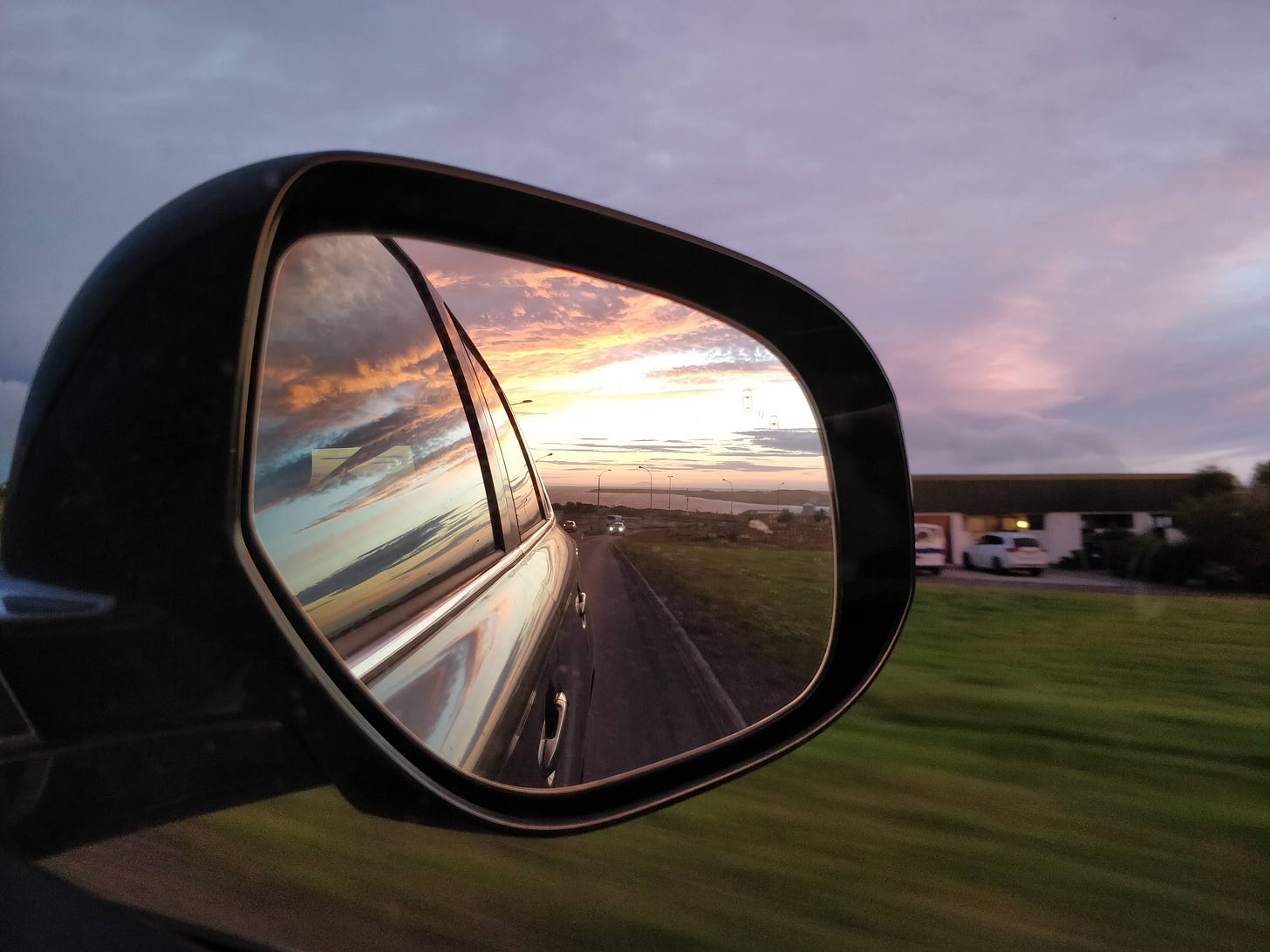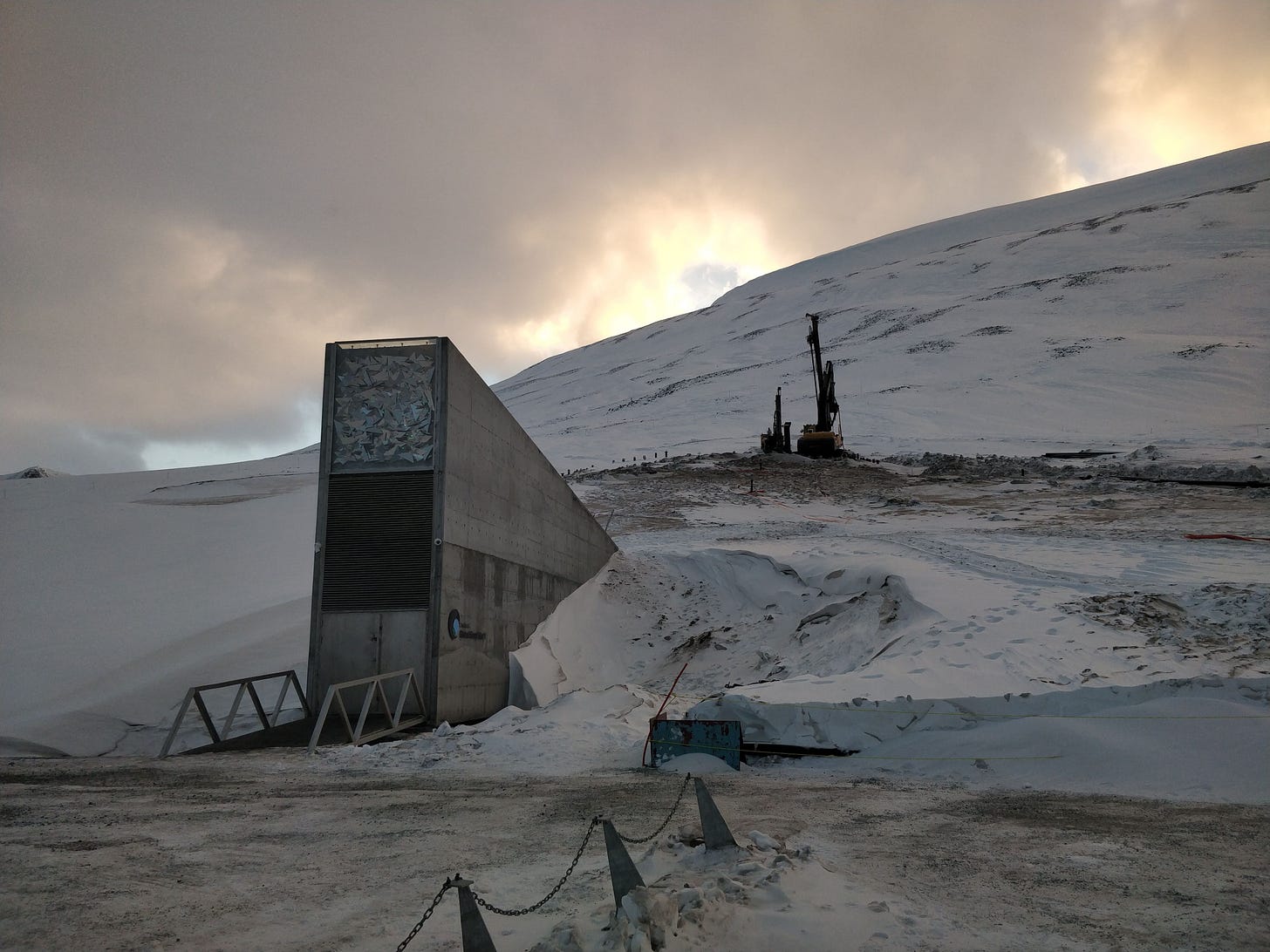Weekend reads (and viewing)
A newsletter about food systems, climate change and everything connected to them
This has been a monster of a week work-wise so I’m gonna keep this one short and share some of the really good stories I’ve come across recently. I bet you’re relieved too not to have to read another super nerdy issue around emissions or meat.
Some of these stories are brand new, others over a month old, but they are all fairly long reads and I found all of them fascinating. I hope you do too.
A wide-ranging interview on food systems
Bronx native Errol Schweizer (@grocery_nerd and @checkoutradio on twitter) is an entrepreneur who has held many positions in the food industry over the past quarter of a century, including as a cook, a purchasing manager and V.P. of Grocery at Whole Foods. He now contributes regularly to Forbes and host the podcast The Checkout.
Sonalie Figueiras of Green Queen interviewed Errol and it will take 25 mins of your time but it is so worth it. They touched on everything from his experience at Whole Foods and the buzz over regenerative agriculture to issues around supply chain ethics, fair wages and cell-based meat, on which he recently did a piece and asked some really important - and often uncomfortable - questions.
There are so many gems in this piece but here are a few quotes from the piece that gives you an idea of the depth and range of things they talked about.
On workers in the food industry
“For American workers, they’re lucky if they have a healthcare plan with their employee that covers their stuff. Then for gig workers, they’re precarious and if they’re lucky, they could get on an Obamacare plan. For many of them, they don’t have healthcare. They are biking around New York City or San Francisco or Chicago, in the traffic, without health care. Terrifying. I was a bike messenger for a while, so to me, that is like risking your life just to put food on your table and pay your rent. The whole equation is backwards.”
On cellular meat
“I have food allergies and sensitivities. I know a lot of folks, friends, and family who have inflammation-related diseases. I guess just the basic question is whether this stuff is gonna make us sick? The work that cell-culture is built on in order to give it the mouthfeel of a steak, it’s going to be maybe crustacean shells and maybe plant-based and maybe GMO. It may be plastic, I don’t know. Is that digestible? Is it bioavailable? Is it going to make my joints hurt if I eat it?”
“This is what I have to ask every time I shop and buy food, not just for myself, but for family members who have Lyme or friends who have rheumatoid arthritis, or whether they’re recovering from cancer. We’re talking about tens of millions of people who have these diet-related illnesses, but also illnesses related to what they can or really should not eat, as well as allergies, like gluten-free and soy and wheat and peanuts.”
Ice cellars in trouble
This Civil Eats piece is about the deep underground cellars where Native Alaskans have been storing subsistence food for generations. They are now in danger from climate change. Melting permafrost, caused by high temperatures, is making these cellars too warm to store food in a safe manner. Some have become flooded and others have collapsed.
If you are wondering what these store rooms are like, here’s a description:
“Traditional siġluaqs, or ice cellars, are made by digging a tunnel 10 to 20 feet into the earth’s surface and creating a small room deep inside the permafrost. A heavy cellar door, three to four feet wide and made of wood, covers the entrance. To reach the crisp earthen room, which should remain approximately 10 degrees Fahrenheit year-round, one must descend a long ladder - and bring a light.”
This not only raises concerns around food insecurity, but also on the loss of a cultural heritage. In fact, the sudden environmental change is causing immense grief for Indigenous Alaskans and this climate grief is known as “solastalgia”, the report said. Efforts are now underway to see if advanced, portable freezer systems could be viable alternatives.
The Arctic is warming faster than the rest of the world.
I wrote in 2018 about how Longyearbyen, the small Arctic town halfway between mainland Norway and the North Pole, had been seeing 86 consecutive months of above-normal temperatures. The Arctic Seed Vault, built deep into a rock outside Longyearbyen was facing its own climate pressures from the permafrost thaw.
Palm reading
Mongabay reviewed Planet Palm, a book by journalist Jocelyn Zuckerman that charts how palm oil became a ubiquitous ingredient in the modern world, used in everyday products ranging from soap, lipstick and shampoo to pizza dough, ice cream and instant noodles.
The reviewer, who first met Jocelyn in 2014 in Liberia while working on land rights issues, said, “I was struck by how much of what I saw in Liberia - the horrendous treatment of workers, deceptive promises made to forest communities, and chilling harassment of activists - is a feature rather than a bug of the global palm oil trade, and has been for more than a century.”
I come from a region - Southeast Asia - where palm oil is a major part the economy, particularly in Malaysia and Indonesia and have read the destruction it has wrought to indigenous communities while bringing untold riches to a handful of well-connected businessmen and their patrons.
From the review, it sounds like Planet Palm would be a gripping and illuminating read but perhaps I might need to bookend it with some lighter material. It’s going onto the “to buy” list.
Let’s get high…
On the hog, of course. I wrote about this Netflix show before it debuted and now that I’m almost finished watching it, I can’t recommend it enough.
It traces the roots of some of America’s best-loved dishes and ingredients - mac & cheese anyone? - and how the country’s culinary journey has been influenced by Africans who were brought, chained and bound, to America’s shores. Rich culinary traditions came with them.
I don’t want to give too much of it away, but I love how it marries scrumptious food with great characters and heartbreaking - as well as uplifting - history. Set aside an afternoon to watch it. Seriously.
As always, have a great weekend! Please feel free to share this post and send tips and thoughts on twitter @thinink, to my LinkedIn page or via e-mail thin@thin-ink.net.




